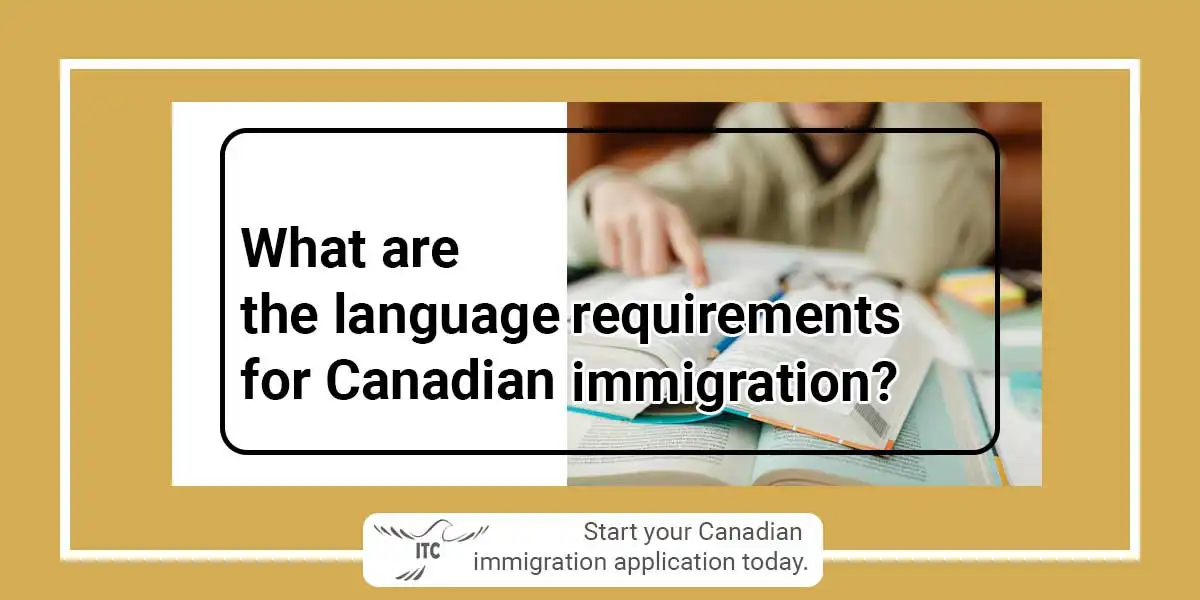Understanding Language Requirements for Canadian Immigration: A Comprehensive Guide
Canada, known for its cultural diversity and inclusive policies, places a significant emphasis on language proficiency for immigrants. This requirement not only facilitates smoother integration into Canadian society but also ensures that immigrants can effectively participate in the Canadian economy and community. In this comprehensive guide, we’ll explore the language requirements for Canadian immigration, covering everything from the recognized tests to preparation tips.
Why Language Proficiency Matters in Canadian Immigration
Language proficiency in either English or French, Canada’s official languages, is a cornerstone of the immigration process. Proficiency in these languages is crucial for employment, communication with government services, and everyday social interactions. It also plays a significant role in the Canadian immigration points system, affecting applicants’ chances of success.
Recognized Language Tests for Canadian Immigration
Canada recognizes several standardized language tests to assess applicants’ proficiency in English and French. These tests are:
For English:
- IELTS (International English Language Testing System): Widely recognized, it tests listening, reading, writing, and speaking skills.
- CELPIP (Canadian English Language Proficiency Index Program): Specifically designed for Canadian immigration, covering similar skills as IELTS.
Required Proficiency Levels
The required proficiency levels vary depending on the immigration program:
Express Entry:
• Based on the Canadian Language Benchmark (CLB) for English and the Niveaux de compétence linguistique canadiens (NCLC) for French.
• Higher language proficiency can result in more points in the Comprehensive Ranking System (CRS).
Provincial Nominee Programs (PNPs):
• Requirements vary by province, with some provinces having lower language requirements for certain occupations.
Family Sponsorship:
• Generally, no language requirements, but proficiency can aid in faster integration.
Business Immigration:
• Varies based on the program, with some requiring minimal language proficiency.
Exceptions to Language Requirements
There are certain exceptions to the language requirements, especially for specific categories like refugees or elderly family members in family sponsorship programs. It’s crucial to check the latest guidelines or consult with immigration experts for specific cases.
Preparing for the Language Tests
Preparing for language tests is crucial for a successful immigration application. Here are some tips:
Understand the Test Format: Familiarize yourself with the test’s structure and types of questions.
Practice Regularly: Consistent practice, especially in speaking and writing, can significantly improve language skills.
Use Online Resources: Many online platforms offer practice tests and tutorials.
Join Language Classes: Consider enrolling in language classes, particularly those focused on IELTS, CELPIP, TEF, or TCF preparations.
Engage in Language Immersion: Engage in activities that involve English or French, like watching movies, reading books, or conversing with native speakers.
Keeping Up-to-Date with Changes
Language requirements for Canadian immigration can change, reflecting shifts in immigration policies. It’s essential for potential immigrants to stay informed about the latest requirements and changes. Government websites, immigration forums, and consulting with immigration professionals are reliable sources for the most current information.
Conclusion
Language proficiency is a critical aspect of Canadian immigration, influencing applicants’ ability to integrate and succeed in Canada. Understanding the requirements, preparing adequately for the recognized language tests, and staying updated on policy changes are vital steps in the immigration journey. With the right preparation and resources, meeting Canada’s language requirements can be a manageable and rewarding part of the immigration process.
This blog post covers the essentials of the language requirements for Canadian immigration, providing a thorough overview for readers seeking to understand this critical aspect of their immigration journey.
Do you want to have detailed updated information about your visa file?
You can apply for GCMS Report to recieve detailed information about your file; and/or Recieve copy of your file is in process in the IRCC
To find out if you’re eligible for immigration to Canada, simply complete our free assessment! A member of the ITC Immigration Team will review your eligibility and contact you to discuss your options!
Do you want to have detailed updated information about your visa file?
You can apply for GCMS Report to recieve detailed information about your file; and/or Recieve copy of your file is in process in the IRCC



